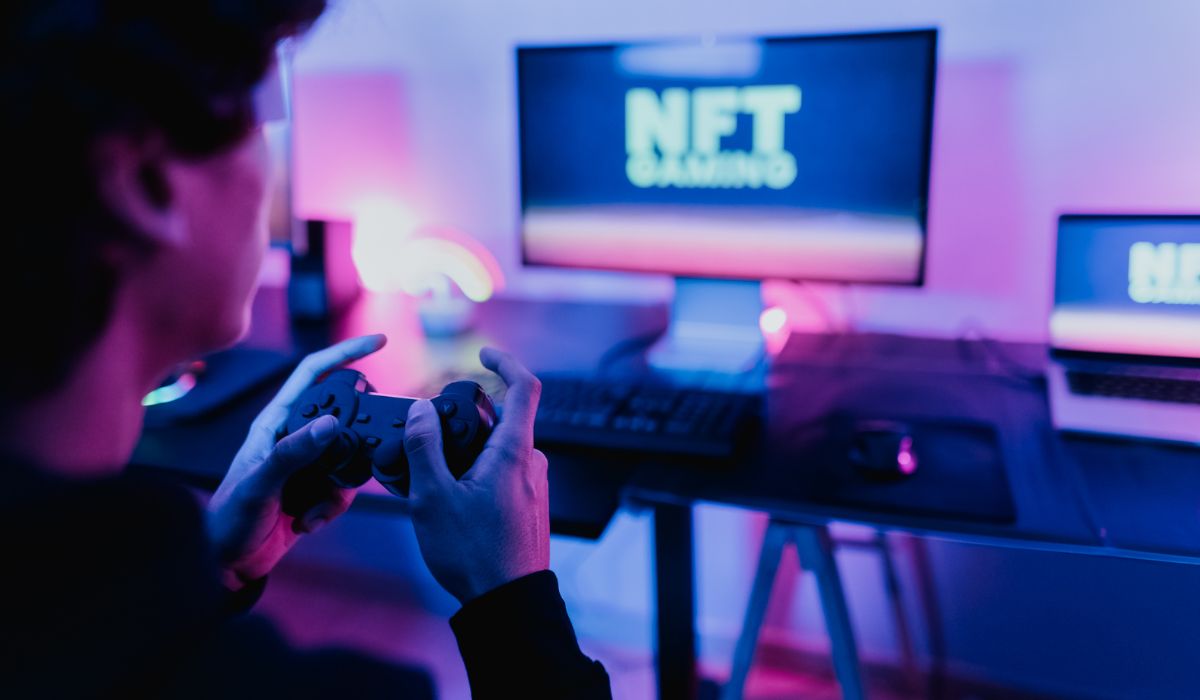
 
 
Although non-fungible tokens (NFTs) have been heavily popularized over the past several years, many people still fail to realize the tremendous potential that they possess as a utility-based technology.
“However, few industries are forging a path forward for NFTs than the gaming industry,” says Tomi Brooks, Executive Officer and Head of Business Development of Web3 game developer double jump.tokyo. “In addition to being one of the earliest adopters of this technology, the gaming industry has also been at the forefront of innovation in blockchain, finding new and creative ways to implement it.”
How the gaming industry is paving the way for utility NFTs
Perhaps the most important shift the blockchain industry has seen is the transition from traditional NFTs — generally a JPEG image attached to a string of blockchain code — to utility NFTs, which entitle their holder to some other benefit. From exclusive access to in-person events and clubs to the chance to win luxury vehicles, the benefits that come with utility NFTs make them more appealing to potential buyers.
One of the reasons why the gaming industry has become such a pivotal force in the widespread adoption of NFTs is that they offer one of the most obvious use cases for the technology. The gaming community is often passionate about the games they play, and is frequently willing to spend enormous amounts of time — and money — on achieving even the most seemingly small cosmetic accomplishments. As such, NFTs have shown great potential for being used as players’ collectible and unique in-game avatars, weapons, or even tools.
How NFTs will help advance the gaming industry
Because NFTs are based on the blockchain, this technology inherently facilitates better and more streamlined trade of in-game collectibles. Every time a transaction occurs using an NFT, the transaction is recorded on an immutable, permanent record. When coupled with the additional security features of blockchain technology, games built on the blockchain are generally less vulnerable to hackers who wish to gain an unfair advantage using illicit means.
Yet, some people do not realize how massive the market for in-game purchases already is. Projections show that the amount spent on in-game purchases in 2025 could be $74.4 billion or more, proving that gamers are willing to spend enormous money on digital assets to improve their in-game experience — even if only cosmetically. With the introduction of blockchain technology to these digital assets, the transaction process will be greatly improved for players and game creators alike.
Indeed, as democratization is one of the core facets of blockchain and NFTs, the purpose of integrating NFT technology into games is to restore true ownership of these digital assets to the players. “When a player owns an NFT of a skin, for example, that player is the only person who can use that skin until or unless they trade it to someone else,” explains Brooks. “This allows players to have more control over their in-game experience.”
Another unique advantage of blockchain technology is that players can now transfer assets across the game they own for the first time ever. In the past, the ability to transfer assets between games has been restricted by proprietary, non-compatible hardware. Since NFT games are based on a common technology in the blockchain, they now have greater technical compatibility, and players can transfer their favorite skins and items between games.
NFTs also have the added benefit of creating scarcity and exclusivity. Many in-game collectible items are in-demand because they are limited edition — earned or purchased by players in connection with a particular event, occasion, or task. With NFTs, these collectibles can become truly limited editions, as game creators can limit how many of these digital assets are minted and made available to the public.
Success stories for NFT gaming inspire a positive outlook
Brooks and the team at double jump.tokyo have extensive experience working with game developers to integrate blockchain technology into their games, being the force behind such blockchain gaming hits as “My Crypto Heroes,” “Brave Frontier Heroes,” and “My Crypto Saga.” “The technology’s ability to improve the player experience while also increasing the return of game developers makes it a win-win for all involved,” Brooks asserts.
These days, some of the most popular and reputable game companies in the world are beginning to work with companies such as double jump.tokyo to integrate blockchain solutions into their properties. For example, just recently, it was announced that doublejump.tokyo secured a license from SEGA CORPORATION to create a blockchain game based on the popular “Sangokushi Taisen” franchise, using the property’s popularity in combination with the power of blockchain technology to help expand the franchise’s offerings.
Thanks to the numerous benefits it offers both gamers and game developers, it’s clear that NFT technology has a bright future in the gaming industry. Game developers who wish to democratize the in-game experience by providing players with true ownership of their digital assets and facilitating a better market for trading these valuable collectibles will emerge at the forefront of the gaming industry’s future.
